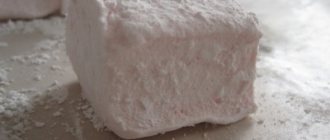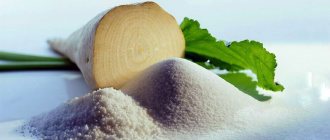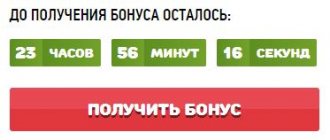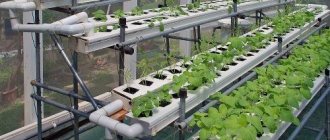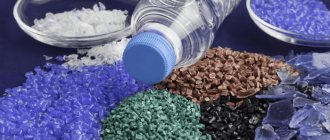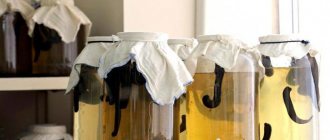Making paving slabs at home is not only a cost saving, but also an opportunity to organize a mini-production with a profitability of more than 100%. Read the article and you will find out: how to open a home workshop for the production of tiles of unique colors, what equipment and materials are needed in production.
Malachite colored paving slabs
The technology described below is a method for the production of artificial marble and other imitations of natural stone, suitable for the manufacture of:
- paving slabs, paving stones;
- facing tiles, panels;
- products of landscape architecture;
- eurofence;
- stairs and balusters;
- curb and drainage.
Setting up a home workshop will require minor expenses. When purchasing a complete set of equipment on the secondary market, the estimated costs will be 30,000 rubles. Do-it-yourself tiles will be half the price of purchased ones.
Balusters colors: marble, granite, malachite
Step-by-step opening plan, where to start
A significant advantage in organizing a business for the production of paving slabs is the absence of the need to obtain special licenses and mandatory certification.
In this regard, it is necessary to draw up a business plan taking into account the following factors:
- Registration of an individual entrepreneur or LLC, depending on the volume of sales and production.
- Selection of premises for production.
- Purchase and installation of necessary equipment.
- Recruitment and training of personnel.
- Setting up sales of products to the sales market, establishing supply agreements with sales representatives.
How to make a vibration table with your own hands
To produce small volumes of paving slabs, you can build a block vibrating table with your own hands. Convenience of work is ensured by a unit with a tabletop 600*800 mm, 90 cm high.
Metal parts used in the work may be used
Design features of the base:
- the legs are made of pipes with a square section of 40*40*1.5;
- soles 55*55 mm, 1.5 mm sheet;
- upper crossbars 40*20*1.5;
- lower crossbars 20*20*1.5;
- M14*40 bolts are welded in the corners, on which the springs and table top will be installed;
- a 1.5 mm sheet is welded on the side - for fixing the socket and switch.
Design features of the tabletop:
- the surface is made of steel sheet 8.0 mm, 600*800 mm;
- the frame can be made of pipe 40*40, 40*20 mm;
- to install the springs, bolts are welded in the corners;
- In the central part, channel No. 8 is welded, with four holes Ø15. It is convenient to drill holes in three stages - f3, f6, f15. The engine will be attached to the channel (using nuts and bolts);
- four springs. You can take springs from any old car, with an internal diameter of 21 mm, an external diameter of 27 mm, and a length of about 65 mm. If you place scraps of rubber hose and then springs on the prepared bolts, they will be more stable and provide ideal vibration.
Choosing a vibrator
The unit can be removed from old household appliances or purchased from the factory. The device must operate from a standard 220 V network. Optimal power is 0.9 kW . Fastening to the channels is done using 100*16 mm bolts, washers and engravers.
After installation, the driving force is adjusted (if there is a factory device). The vibration amplitude should be approximately 1.0 mm . You will also need an extension cord, socket, switch, plug. Electrics must be grounded.
It is recommended to paint the assembled product (welding is used in the work) with metal paint to prevent rust. The sides are welded around the perimeter of the table for ease of work, for which you can use available material - a thick rod or tube.
The advisability of purchasing professional equipment depends on what goals the master is pursuing. If making tiles is necessary for paving two or three paths, you can make do with available materials and minimal costs. If you plan to carry out a wider range of work or organize your own production line, it is advisable to purchase professional units.
The production and operation of equipment for the production of paving slabs (vibrating table) is shown in the video:
Advantages and disadvantages
Paving slabs are used for arranging paths and platforms. It is used in city parks and squares, squares and city roads, as well as in front of various enterprises and shops and in the courtyards of private houses.
The main disadvantage of such a business is the high level of competition - in every city there are at least several companies providing such a service. The business will also be seasonal, because the number of orders increases greatly in warm weather, and in order not to sit idle and earn money in the winter, you will have to make a lot of effort to find customers. It will also require quite a large investment to purchase equipment.
But the following advantages can also be highlighted:
- no need to obtain a license to conduct activities.
- simple registration process.
- many customers are not averse to paying a high price for good material;
- a small staff is required (however, high turnover is possible due to the monotony of the work, which can quickly become boring);
- the production workshop can be located anywhere, which means you don’t have to spend money on renting premises in a prestigious area.
Requirements for paving slabs
Basic requirements for paving slabs:
- Compressive strength of concrete. Designated as B24, where B is the strength class, and 25 is the minimum load that the structure can withstand (25 MPa or 254 kgf/cm2). For tiles, classes from 22.5 to 40 are used.
- Frost resistance. It is marked at least F200, where F is the frost resistance grade, and 200 is the number of freezing and thawing cycles (from -20 to +20 °C).
- Abrasion. Shows how much the volume and weight of the tile will change when exposed to friction. G1 marking is used (no more than 0.7 g per cm²)
- Operations group. Divided depending on the impact of loads during use: A - pedestrian and street sidewalks, B - stops for public transport or bicycle paths, C - places for parking lots, gas stations and roads with little traffic, D - container terminals or warehouses.
- Water absorption. It affects the service life of the tile, since with a high percentage of absorption it can break during freezing and thawing. The amount of moisture should not exceed 5-6% by weight of the product.
Tiles under the snowSource i.imgur.com
Also, the composition of paving slabs during their manufacture should contain a minimum amount of moisture, as this directly affects its strength.
Advertising and promotion of paving slabs
In order for a business to be promising, it is necessary to organize stable sales of finished products. Traditionally effective is advertising in newspapers, on television and especially on the Internet, publishing advertisements on various information platforms and bulletin boards. All advertisements must be accompanied by high-quality, bright photographs of the finished product, descriptions of product characteristics, and additional information. The presence of a system of discounts, promotions, the possibility of delivery and pickup, as well as the ability to order products via the Internet will also attract customers. You can create your own website, which will contain information about products, terms of purchase and payment methods, production times, contacts, as well as a gallery with photographs of finished products.
Distributing leaflets is not very effective because most of the information material will miss the target audience.
Advice.
Try to establish cooperation with organizations that specialize in laying paving slabs. If you give them a discount, arrange delivery, or provide any other additional bonuses, they will be happy to order products from you. You can also negotiate with construction stores and shopping centers so that they recommend your product to customers.
You can distribute booklets with photographs of already laid tiles and recommendations for caring for them, this will additionally attract buyers. It is important to consider: it happens that paving slabs are not ideal in size. The difference in tile thickness of 5 mm significantly complicates the process of laying it. Therefore, even if very favorable sales conditions are created, such a defect will lead to the fact that no one will buy the tiles. The same applies to such qualities of tiles as strength, resistance to abrasion and adverse weather conditions. To avoid such problems, it is necessary to carefully monitor the quality of manufactured products. To do this, you need to strictly maintain the dimensions of the product, purchase only high-quality raw materials, and follow all technological stages of tile production.
And one more nuance. Having decided to purchase paving slabs, the buyer wants to be able to choose the color and shape of the product and is not willing to wait a long time for it to be made. Therefore, the richer your assortment and the larger production volumes, the more customers you will have.
Do I need permission to open a production facility?
To organize the production of paving slabs, it is enough to register an individual business. As a taxation system, the best option is the simplified taxation system (STS), 6% of revenue or 15% of profit.
Let us calculate the main indicators of the economic efficiency of the production of paving slabs using the vibration casting method.
Introductory information:
- Production area: 90m2;
- Type of property: rent (25 thousand rubles/month);
- Number of shifts: 1 shift;
- Productivity per shift: 50 m2 of tiles or 1100 m2 per month;
- Number of working days in a month: 22 days.
Which technology to choose?
The production of paving slabs can be carried out using one of 2 technologies:
- Vibration pressing. The finished mixture is compressed using a vibropress. The technology requires expensive equipment that can handle large volumes (up to 1000 m² per working day) with virtually no manual labor. The price of equipment starts from $5,000, so this is an option for large companies.
- Vibrocasting. For production you need a concrete mixer, a vibrating table, and plastic molds. Products are formed on a vibrating table and dry on it for 2-3 days. The product will be ready in 30-32 days. Up to 100 m² can be produced per working day. This production method is characterized by a high percentage of defects; the labor is completely manual. Vibro-cast masonry cannot withstand high loads. Usually it is bought by private individuals to decorate the territory of their dachas and country houses.
Vibratory casting can produce paving stones of various shapes with a smooth surface, and the equipment costs are low. This is a good solution for small businesses.
What documents are needed to open
Registration of a business will require registration of an individual entrepreneur or LLC. In the first case, the businessman must submit a notarized application for business registration indicating the OKVED code, a photocopy of the passport and ID code, as well as a receipt for payment of the state fee.
If you want to additionally receive a quality certificate, then you need to contact the appropriate organization, which will conduct an analysis for compliance with GOST, identifying indicators of humidity, frost resistance, mechanical strength, etc.
Personnel, documentation
It is necessary to hire an experienced and qualified technician. It is also necessary to hire an accountant. It would be good if, in addition to this, the company would have employees laying paving stones according to customers’ orders. Providing such additional services can attract customers.
When registering an enterprise, as a rule, it is best to register as an individual entrepreneur, although when working with large customers, it is preferable to register as an LLC.
You can also undergo voluntary certification: this will be an additional advertising advantage for the company. To solve all problems with legal documents, you can contact a special intermediary company.
Description of the sales market
For a real assessment of the prospects for the paving slab production business, as well as for making effective decisions during the implementation of the business plan, information is needed that fully characterizes the sales market. Such information, in particular, includes the following data:
Volume and potential capacity of the paving slab market . This parameter has significant indicators, even taking into account the crisis phenomena in the Russian economy since 2012 (decrease in sales of new housing by almost 25%, decline in real income of the population by more than 10%). So, only in 2020 and 2017. More than 14 million sq. m. were sold on the market. m of paving slabs.
Given the renewed demand in the housing market, as well as the recovery of economic growth, we should expect a further increase in production volume and demand for paving slabs. In physical terms, it is predicted for the period 2020 - 2022. the volume of demand is at a level not lower than 14-15 million sq. m. m. tiles.
It should be noted here that the production and demand of paving slabs are distributed extremely unevenly throughout the country. The largest share, more than 50%, falls on the central and southern regions of Russia.
Moreover, more than 70% - 80% of this demand is observed from municipal and government customers. However, there is a tendency for the share of demand to increase from private clients and developers.
Market dynamics . The paving slab market began to truly grow around 2011, when Moscow adopted a program to massively replace asphalt pavement with tiles. Following Moscow, this trend was picked up by regional centers.
Since then, until 2017-2018. The paving slab market is growing at a rate of approximately 5% - 9% annually. This trend is continuous, with the prospect of continuing in the future. The only negative point is that demand is affected by the seasonal factor, which resumes with the beginning of the warm season.
Main manufacturers and competitors in the market . The technology for the production of tiles and similar building materials is increasingly taking the form of modern production using automatic equipment. There are already full-cycle production lines on the market, designed for any production volume. In the central part of the country, the most powerful players in the tile market are the following (Belgorod region), Aksaystroyprom LLC (Rostov-on-Don). LLC "Stroydetal" (Lipetsk), JSC "Experimental Plant" (St. Petersburg), JSC "VKSM" from the Voronezh region, LLC "ZTP "Chelsi" from the Chelyabinsk region, JSC "SPETSSTROYBETON - ZhBI No. 1" (Moscow) .
At the municipal level in most regions of the country, there is competition from small private industries, each of which is focused on its own limited market share.
The main conclusions that can be drawn from the above brief analysis of the paving slab market are that:
- The market is in the initial stages of its development and the prospect of widespread replacement of asphalt pavement with more environmentally friendly, aesthetic, durable and relatively cheap paving slabs in Russia is still very far from being fully saturated. Those. The prospect of demand growth is traced for at least 10-15 years.
- The competitive environment mainly exists on the part of large monopolistic companies, which are not found in every regional or regional center.
It should also be taken into account that emerging new technologies for the production of paving slabs in the near future can radically reduce production costs (primarily energy consumption) by several times. This will provide an additional economic effect in the form of an increase in real profits.
Cost of paving slabs
According to market research, the cost of paving stones can vary from 400 to 800 rubles. per m2. To choose the optimal price, you will have to study the market and evaluate competitors' prices. To win clients, you can offer a lower cost for your services than other similar companies in the city. This will allow you to acquire a client base.
There are 2 main ways in which paving slabs are produced:
- Vibratory casting is a simple and cheap method, but the quality of the resulting tiles is not too high. For production, crushed stone, cement, water and sand are immersed in a concrete mixer, after which the resulting substance is poured into molds standing on a vibrating table. Moreover, the device continues to work until the surface of the tile becomes wet. After that, the forms are left indoors for 48 hours to dry, then placed in an oven preheated to 60-70 degrees for 5-10 minutes. Next, the resulting tile is removed from the mold on a vibrating table. In this case, during the heating and beating process, potholes, cracks and chips may form on the surface of the tile. Therefore, it is important to use high-quality equipment and trust the production to trained personnel.
- Vibrocompression and hyperpressing - this production method will require very expensive technical equipment, but the quality of the resulting materials will be high. The molding sand is prepared as in the previous method, after which it is poured into molds and pressed using machines. To achieve readiness for the tile, 8-9 hours are enough under natural conditions. You can also use hot steam, then drying will take only 5-6 hours. High-quality equipment and minimal influence of the human factor allow you to work almost without losses.
Tiles made by vibration pressing have a rough surface and absorb moisture well. Tiles produced using vibration casting, on the contrary, are glossy and become very icy during frosts.
Which method to choose depends on the amount of initial investment. Vibrocompression is also recommended for the production of large volumes of products.
Vibrocasting
In order for paving slabs to be produced by vibration casting, the following list of necessary devices and mechanisms will be required:
Vibrating table
This is the main component in order to implement this production method.
This product is a metal table, which consists of
- frames;
- vibrating plates.
A vibration motor is attached to the vibrating plate, and the plate itself is mounted on vibration pads on a frame that is rigidly fixed to the floor surface.
Vibrating table sizes may vary. This depends on production volumes. Usually this:
- height 0.7-1.2 meters;
- width 0.4-0.8 meters;
- length 0.8-2 meters.
You can buy it ready-made, or you can make it yourself. If funds allow, then the second option is preferable. Although many online resources say that making this equipment yourself is not difficult, there are still some nuances. Indeed, you can make such a device with your own hands, but achieving the desired vibration characteristics will be extremely difficult. Strong vibration will throw concrete out of the molds, weak vibration will not compact it enough.
In addition, in addition to the strength of vibration, there is such a thing as its amplitude. It will directly depend on the correct location of the motor on the vibrating plate, its characteristics, and the stiffening ribs of the vibrating plate. With a strong amplitude, the concrete will seethe and the products will end up with shells. If the amplitude is weak, the concrete may not fill all the unevenness of the forms, and this will become clear after removing the tiles from them.
Famous manufacturers keep all such subtleties secret, and it’s impossible to pick them out by eye without engineering calculations. The amount of defects will cover any savings on equipment and on independent production in general.
Concrete mixer
For the vibratory casting method, you will need a simple gravity concrete mixer, which can be bought at any store. Depending on the conditions under which the work will be carried out, you can choose a large or small volume of the concrete mixer bulb. Small units are cheaper and are quite suitable for handicraft production. Large mixers are worth buying if you have the opportunity to work with a large number of molds. Because if their quantity is small, there may be unused concrete left that will have nowhere to put it.
Forms
This is also an important component of the process. To make the products beautiful and varied, you need to have several different shapes. You can also make them yourself, but it is better to purchase them from professionals. Experiments with materials will result in a certain amount of defects, and the resulting workpieces will either collapse under the pressure of vibration and concrete, or stick to the finished products. Without experience, you won’t be able to make high-quality forms.
Forms are made from:
- plastic;
- fiberglass;
- silicone.
The last option is the most expensive and most preferred. It will allow you to remove finished FEMs without the need to heat the mold, which is very important, since it saves a lot of time and money on regularly heating large amounts of water.
Drying racks
After being placed in molds and compacted, the tiles must harden for some time so that they can be stripped. To do this, during the production process you need to have a certain number of racks for storing half-baked products. If you make only a few tiles per day, you can simply lay them out on the floor. For large volumes, you will need racks, the dimensions of which will allow you to store a certain amount of tiles on them. Typically, the size of the rack is the same as that of the vibrating table. This is necessary in order to separate some batches of products that differ in color and shape from others.
Capacity for heating water
Warm water is needed to soften the plastic of the molds. Such tanks are usually made of metal on top of a wood-burning stove. But there are also more technologically advanced designs. For silicone and fiberglass materials, softening is not required.
Pallets for storage and transportation
Such elements are not always needed, since, in most cases, in small-scale FEM production, there are not such volumes of sales of a homogeneous pattern to load it with hundreds of elements. This requires strap ties, loading machines and a significant area.
Buckets, shovels
These tools are needed for the entire production cycle.
Sales and Marketing
The main objective of the production of paving slabs, considered by the draft of this business plan, is not only to maximize profits, but also to create stable and long-term relationships with customers, without which it is impossible to conquer and expand its market share.
To specifically implement this project goal, a specific marketing plan is required, which consists of the following elements:
Target audience of consumers and corresponding sales channels.
Key clients in the paving slab market of most Russian cities and towns are:
- customers in the form of state and municipal municipal enterprises, budgetary institutions. The market share or order portfolio of such clients ranges from 50% to 80%. In this case, this means not only the improvement of streets, squares, sidewalks and public areas of the city infrastructure, but also the territory of schools, kindergartens and other social institutions. The main sales channel is through the conclusion of a state or municipal contract for the supply of products and provision of services. Such contracts are concluded using the bidding system for municipal procurement, through the company’s participation in auctions, trades and tenders, which are held on special electronic trading platforms (electronic auctions).
- Clients of the commercial sector are various trade, catering and other public service enterprises that need improvement of adjacent areas to their facilities, offices, etc. Sales channel - through direct interaction with customers, as well as through a system of electronic commercial auctions;
- private clients - individuals who need landscaping of the territories of their private houses and garden plots. The main sales channel is the sale of tiles through a network of construction supermarkets, construction markets, as well as sales through applications on the company’s website and delivery of goods to the client.
In addition to these main customer groups, you should also consider supplying paving slabs to various public organizations, including HOAs and other housing cooperatives.
Advertising.
The advertising package of the paving slab business is predominantly sold through traditional advertising distribution channels. This:
- Advertising through the media, including through Internet channels and social networks.
- Advertising products using information billboards near construction markets and supermarkets.
- Distribution of printed booklets with basic information on the product, the properties of certain types of tiles and prices.
- Advertising the company's products through participation in various exhibitions, both municipal scale and participation in regional sales exhibitions.
Incentive system and loyalty programs.
In this project, it is planned to use not only a system of discounts for regular customers, but also such types of loyalty incentives as free delivery of batches of tiles, an individual approach to the requirements and desires of the customer.
For the practical implementation of the entire marketing complex, it is also envisaged to create your own website, which will display all the information necessary for the client, including a pre-order and cashless payment system.
Who is your potential client?
The answer to the question of who to sell paving slabs to does not include many answer options. This is a specific product with a limited scope of use.
The product may be of interest to:
- municipal services of the city, responsible for its improvement;
- owners of private houses and plots outside the city;
- construction companies.
It is government services and construction companies that are able to provide a relatively constant demand for your products. However, here you will have to face competition from companies that have been on the market for a long time. Therefore, initially in business it is better to focus on private clients, although working with them will not bring as much profit as large orders from government organizations, you can also make good money by fulfilling private orders.
Approximate income and expenses for the production of paving slabs or how to calculate the return on investment of a business.
To calculate our business, we plan to purchase a small-sized brick making press, with a formation zone for 3 wall stones, a concrete mixer and a conveyor. The cost of the equipment we selected is 705,000 rubles. Additional molding and other equipment – 150,000 rubles. The total cost of the equipment is 855,000 rubles. Productivity per hour of the equipment we selected for calculations: wall stone - 90 pieces, paving slabs 6 m2, road curb 18 linear meters. There are 2 employees - no special qualifications are required for this monotonous job, so the salary is 30,000 rubles per month. The initiator of the project is an individual entrepreneur and is engaged in the sale of tiles.
Organizational costs, registration of individual entrepreneurs, certification of products will amount to 16,000 rubles.
Table 1. Investments in business.
| Total | |
| year | |
| Purchase of equipment | 855000 |
| Working capital | 0 |
| Organizational expenses | 16000 |
| Total expenses | 871000 |
The head of the enterprise is the initiator of the business; workers are needed to run production; we draw up a staffing table, calculate wages and the amount of tax deductions from the payroll fund.
Table 2. Staffing table.
| Job title | Qty | Salary | Total |
| Human | rub/month | Payroll | |
| Worker | 2 | 15000 | 30000 |
| TOTAL | 2 | 15000 | 30000 |
Table 3. Payroll taxes
| Total | Total | |
| 1 year | 2 year | |
| TOTAL PAYROLL | 330000 | 360000 |
| TOTAL TAXES | 99000 | 108000 |
To calculate profitability, let’s assume that it is planned to produce 8*6=48 sq. meters of tiles per shift or 1056 square meters of tiles per month.
Income: With an average price of 400 rubles per 1 sq. m. of tiles, income from the sale for the month will amount to 422,400 rubles. Revenues based on the results of two years of operation are shown in the table below.
Table 4. Revenue from tile production
| Total | Total | |
| 1 year | 2 year | |
| Revenue from tile sales | 4224000 | 5068800 |
| Total revenue | 4224000 | 5068800 |
Main expenses: — rent of premises – 50*600=30,000 rubles per month; — utilities — 6,000 rubles per month; — wages — 30 thousand rubles per month; — advertising — 5,000 rubles per month.
We will make a detailed list and amounts of expenses in the table.
Table 5. Enterprise expenses
| Total | Total | |
| 1 year | 2 year | |
| Fixed expenses | ||
| Wage | 330000 | 360000 |
| Payroll taxes | 99000 | 108000 |
| Rent | 198000 | 216000 |
| Depreciation | 855000 | 0 |
| Accountant services | 50000 | 60000 |
| Variable expenses | ||
| Cement | 929280 | 1013760 |
| Sand | 229997 | 250906 |
| Plasticizer | 113256 | 123552 |
| Dispersant | 52272 | 57024 |
| Communal expenses | 176000 | 192000 |
| Transport | 66000 | 72000 |
| Package | 55000 | 60000 |
| 55000 | 60000 | |
| Insurance individual entrepreneurs | 62393 | 70841 |
| Other variable expenses | 55000 | 60000 |
| Total costs | 3326198 | 2704083 |
To make 1 sq. meter of paving slabs, 4.5 cm thick, we will need: 20 kg. cement, 66 kg. sand and screenings in a ratio of 1:1, 75 gr. plasticizer and 90 gr. dispersant. The dispersant increases the frost resistance of the tiles. Water consumption is 15-17 liters. We will not count the pigment for coloring the tiles. Our products will be grey. More detailed cost calculations can be found in the tables presented. Taxation – simplified reporting system.
Let's draw up a plan for income and expenses.
Table 6. Income and expenses plan
| Total | Total | |
| 1 year | 2 year | |
| Enterprise revenue | 4224000 | 5068800 |
| Production cost | 3326198 | 2704083 |
| Gross profit | 897802 | 2364717 |
| Loan interest | 0 | 0 |
| Profit before tax | 897802 | 2364717 |
| Taxes | 62846 | 165530 |
| Net profit | 834956 | 2199187 |
| Net profit with cumulative total | 834956 | 3034143 |
Thus, the profitability of paving slab production is about 30%, and equipment costs will pay off in 8-9 months, we obtained these figures as a result of our calculations.
Table 7. Final calculation
| Planning horizon | 2 years | |
| Enterprise revenue, rub. | 9292800 | |
| Enterprise profit, rub. | 3034142,6 | |
| Investments in the project, rub. | 898071,93 | |
| Payback period, months | 8 | |
| Profitability,% | 32,7 | |
How to decide on a room
It is impossible to produce paving slabs at home. The manufacturing process is quite dusty, and the machines take up a lot of space. It will be necessary to rent a workshop with an area of at least 50-70 m2. You can rent an empty warehouse and equip it accordingly. In particular, the workshop will need to be insulated - this will save on heating costs. You can also use the room without insulation if you do not plan to start production in the winter.
The production of tiles should take place at room temperature, the tiles can be dried at 20 degrees or more, and they can be stored at any temperature, even sub-zero.
The advantage of a business is that it can be located anywhere, even outside the city, which will allow you not to spend too much money on rent. A good location would be proximity to a wholesale warehouse of raw materials, which will save on delivery costs.
The average cost of a suitable premises will be 600 rubles. for 1 square meter. It must meet the following requirements:
- have all the necessary communications (electricity, sewerage, water supply);
- the electrical voltage indicator must be at least 360 V;
- the presence of a change house or the ability to arrange it on site;
- division into at least 2 rooms - for the production of paving slabs and for storing them;
- ceiling height – from 3 meters;
- convenient entrances for trucks for easy loading;
- the drying chamber must have a hard floor and a temperature of at least 35-45 degrees.
Production of concrete paving stones by vibrocompression
Vibrocompression and vibration casting are the main methods used in factories for the production of paving stones. The first method is considered the main one and is used much more often, since it has significant advantages:
- products made by vibration pressing are durable and frost-resistant;
- the most attractive aspect is the low cost of production;
- when using this method, you can automate the process as much as possible, which will significantly facilitate work and increase productivity;
- as well as produce two-layer tiles of various colors and shades.
The vibration pressing process is carried out in several stages:
- Preparation of concrete
. If you need to make a single-layer tile, one concrete mixer will be enough. Accordingly, if it’s two-layer, then two. The proportions of the substances included in the mixture are selected individually. - Molding
. At this (main) stage the material is compacted. This process takes little time. Next, the already molded paving stones are sent to pallets. The palletizer picks them up and moves them. The following ones are immediately installed in the vacant place. - Drying
. The last stage of paving stone production. In factories it is carried out in special rooms, where products are subjected to heat treatment. Sometimes the tiles are dried directly in the production premises. With this option, Portland cement is included in the solution. Pavers can be removed from pallets and sent to the packing house 6 to 8 hours after this processing step is completed.
Vibrocompression is separately divided into two subtypes:
- semi-dry vibration pressing;
- semi-dry hyperpressing.
In the first option, crushed stone is first added to the semi-dry mixture. The filled forms are then placed on a vibrating bed, where the solution is exposed to a punch. Paving stones made using this method are sometimes difficult to distinguish from real stone.
When hyperpressing technology is used, the mixture is compacted under pressure, and not due to vibration. To produce tiles in this way, a hydraulic press is used.
Thanks to its rough surface, vibropressed paving slabs have proven themselves to be excellent road surfaces. The advantages of such paving stones cannot but be appreciated in winter. Products made by vibration pressing are economical and durable. Due to the specific features of the structure, such tiles are little susceptible to the destructive effects of water and open sunlight.
Equipment and raw materials
The main expenses when organizing a paving slab business are the purchase of equipment. To organize production you need:
- concrete mixer;
- 100-200 different matrices;
- container for washing molds;
- racks for drying tiles;
- scales;
- pallets for storing finished products;
- devices for packaging paving slabs before sale;
- hydraulic trolley for lifting and transporting tiles.
Equipment
Let's consider a set of mandatory equipment for the production of paving slabs using the vibration casting method.
- 2 concrete mixers. The price of one is 8-15 thousand rubles.
- Forms for filling. Polyurethane ones can withstand 100 cycles, plastic ones – about 250, rubber ones – 500. The minimum price of molds for making 1 m² is 250 rubles. Forms for the manufacture of gutters and borders, the minimum price for 1 m² is 200 rubles.
- Vibrating table. Price – about 30 thousand rubles.
- Table for stripping. Price – about 17 thousand rubles.
- You can make your own racks for drying tiles in molds from metal.
- Reinforced PVC film for covering molds. The minimum price is 50 rubles per linear meter.
- Hydraulic rocker. The minimum price is 7 thousand rubles.
- Packaging device. The minimum price is 4 thousand rubles.
- Pallets (pallets). Price – about 500 rubles. You can do it yourself.
The technology of vibrocompression is based on the method of compacting semi-dry concrete mixture with low water and cement content using vibration. To make paving slabs using this method, you need the following equipment:
- Vibropress. Price – 25 thousand - 4 million rubles.
- Technological pallets for vibrocompression. Price – 2-6 thousand rubles.
To make clinker paving slabs, you need the following equipment:
- Extruder
- Molding press. It is better to buy models of different types (belt, rotary, lever, vacuum).
- Pre-drying chamber.
- Tunnel type kiln.
It is better to order a line for the production of clinker paving stones from manufacturers. This equipment is extremely rare in the public market and is very expensive. When making a line to order, the price depends entirely on the characteristics of a particular production.
It is advisable to organize the delivery of paving stones to customers on your own. Renting a vehicle for this purpose is not profitable. It's better to buy your own truck. This will allow us to provide customers with the best service and not depend on possible transport problems from raw material suppliers.
Molds for the production of paving slabs
The forms used for the manufacture of different types of paving slabs differ in design, resistance to mechanical damage and composition. They can be:
- Metal - have a simple but durable design and can be made independently. However, due to the water in the mixture, the metal quickly becomes unusable and becomes covered with rust and corrosion.
- Wooden - inexpensive, the design is also simple, they can be made by hand using plywood and wooden slats. However, it is difficult to remove tiles from such forms due to the fact that wood absorbs moisture well and swells. But this can be avoided by using polyethylene mats to prevent the solution from coming into direct contact with the wood.
- Plastic - lightweight and relatively durable, but with a very short service life, since plastic quickly deteriorates. You will have to buy such forms because they are difficult to manufacture.
- Silicone - can be used from 50 to 100 times and allow you to make a product of any shape.
The most durable are metal forms, and the least durable are plastic. Making them yourself only makes sense if you use a vibrating table. The savings will be about 50%. However, you should not get down to business if you are not confident in your abilities. But it’s not worth assembling the matrix for the machine yourself, since it’s difficult to adhere to the technology from start to finish.
In total, 150-200 molds will be required to produce paving slabs.
Equipment for the production of paving stones
The presence of specialized equipment at an enterprise (large or small) is determined by the production technology of the products. Each type of activity has its own individual list of equipment, mechanisms and auxiliary tools. Whatever technique is used in the production of paving stones, detailed equipment of the workshop will definitely be required.
List of main equipment:
- Vibropress
. In a large enterprise, there are usually several of them. Since one can produce only a certain amount of products per unit of time. Using a vibropress, the main stage is performed - compaction of the mixture. - Vibrating table
. This specialized metal table is used for vibration casting. This device is equipped with an electric motor. Forms with a solution are placed on it, from which excess moisture and air are removed by vibration. Tables differ in the power of electric motors and the size of the working surface. - Concrete mixer.
In production, even small ones, there are usually several concrete mixers. They are used to prepare the mixture for upcoming processing. In the process of producing paving slabs, forced-action and gravity concrete mixers are used. In addition to their modes of operation, they differ in volume. - Vibrating sieve.
It is very important at the preliminary stage of production to ensure the proper quality of raw materials for the solution. Using this apparatus, sifting of bulk materials included in the mixture is carried out. - Palletizer.
It is difficult to underestimate the role of such a loader, especially in a large enterprise where automation predominates. Since all stages of the process must be performed at a set speed. Palletizers are used to move pallets with finished paving stones. This significantly saves time and makes work easier. - Drying chamber.
The equipment is used for drying tiles at the appropriate stage of their production. In factories, special rooms are allocated for such furnaces.
For convenience, it is better to separate the types of forms into a separate list:
- Steel forms
. Used in large enterprises. The use of steel molds in mini-factories is not practiced. - Silicone
. They have proven themselves to be excellent for ease of use, accessibility and durability. - Polyurethane
. With their help, paving stones with a relief surface are made. They are distinguished by their convenience (the material is easily removed) and durability. - Plastic forms
. They stand out for their low cost and variety of possible sets of forms. Not as durable as those listed earlier.
Machine for the production of paving slabs
The vibration casting method is used extremely rarely, so usually the most difficult task for entrepreneurs is finding a new or used brick making machine. Its cost is about 500 thousand rubles in case of purchasing a new machine. You can also opt for a hyperpress. It will cost a little less - 450 thousand. When buying used equipment, its cost will be 40% -50% less than new, but can lead to frequent repairs, or even a complete stop of the machine.
When using the vibration casting method, you will need to buy a vibrating table, its cost is about 30 thousand rubles. You will also need a concrete mixer for mixing all the components and racks for storing finished products.
Summary
The minimum starting capital for entering the paving slab manufacturing business is about 500 thousand rubles (equipment + premises renovation + raw materials). You should have about 200 thousand rubles in reserve for current expenses in the first period until you reach normal profits.
The average cost of producing 1 m² of paving stones using the vibration casting method is 200-220 rubles. Selling price – 330-350 rubles per 1 m². we can conclude that the profitability of the business is 50%. In the absence of downtime, the payback period can be achieved in a few months.
Personnel for the production of paving slabs
The number of employees depends on the planned production volumes. For example, to make 50 m2 of paving slabs on a vibropressing machine, the work of 3 people will be required - an equipment foreman, a handyman and a loader. If you want to organize work in 2 shifts, you will need 6 people. This is quite enough to organize the production of tiles.
Since costs may increase due to ignorance of the process, it is recommended to instruct all workers, as well as issue special clothing and protective equipment.
At the initial stage of a business, the tasks of a sales manager and accountant can be performed by the business owner himself. In the future, when the business becomes larger, you can hire specialists for these positions or attract outsourcing professionals.
Vibration pressing
The technique involves the use of a semi-dry working solution and almost complete automation of the production process. To work, you will need concrete mixers that allow you to prepare a working solution with a low liquid content, and a brick press.
A brick press is an automated device whose operating principle is:
- The semi-dry working mixture is supplied to the matrix molds from the loading hopper. The forms are placed on a vibrating table;
- the punch is lowered, pressing the solution against the matrix;
- vibration is turned on (vibrating table and punch);
- vibration is turned off, the matrix is removed from the product;
- The module is moved from the brickmaking press along a conveyor belt, and the cycle is duplicated.
A guillotine is a special device for splitting/cutting paving slabs. In practice, an ordinary grinder with diamond wheels is used instead.
To fully automate the process, a guillotine and loaders may be required. In addition, different types of equipment are used for work - a brick press can be stationary or manual.
A manual unit is optimal for producing material in small volumes . The device does not use a hydraulic drive, and pressing is carried out using an inertial load. The machine is installed on a flat surface and plugged into an outlet.
Characteristics of the resulting material:
- long-term operation;
- the modules are characterized by strict geometry and a rough surface;
- The concrete used in the batch has a low cement to water ratio. This determines the frost resistance (200-300 cycles), strength (M200/M400) of the tiles and reduces cement consumption.
The technique allows us to produce large volumes of modules, but of a limited variety. The quality of the tiles is higher than that of cast analogues , however, to obtain a fundamentally new product, you will need to purchase a new block with a matrix and reconfigure the equipment. For vibration casting, it is enough to buy a new mold.
Production plan
The scheme for legal registration of an enterprise for the production of paving slabs, according to Russian legislation, consists of two parts:
The first part of the scheme is directly related to the registration of the enterprise as a business.
There are two options for this. The first is to register the business as an individual entrepreneur. This will allow, on the one hand, to reduce and significantly reduce the costs of maintaining documentation and various reporting, and on the other hand, to choose the most optimal taxation regime. In this case, the tax regime option was chosen according to the simplified tax system with a 6% tax burden (according to the scheme: “income - expenses”).
The total period for registering an individual entrepreneur through the local branch of the Federal Tax Service is 3 working days, the cost of completing a package of documents is 10,000 rubles.
The second option is to register (Limited Liability Company). This legal status of the company gives it the opportunity to effectively work with legal entities and clients in accounting for VAT, which in this case can not only be re-invoiced along the further supply chain of products, but also its partial refund can be issued.
This is especially important if part of the supply of equipment or consumables is carried out in the form of imports through direct deliveries from abroad. It should be noted here that, in many respects, it is for this reason that legal entities prefer to work directly with the same companies no lower than the status of “LLC”. You should also understand that having the status of a legal entity, you get more opportunities to work under state and municipal contracts, for example, to participate in auctions and procurement tenders. Registration can be completed through specialized legal entities, with the preparation of all documents. The cost of such a service does not exceed 30,000 rubles.
When submitting an application for registration, it is mandatory to indicate the main activity code OKVED - 02.23.6: “Production of products from concrete, cement and gypsum.”
The second part of the general process of registering an enterprise as a business is related to the fact that you will need to issue a package of permits, such as:
- Permission to operate industrial equipment - through regional or city divisions of Rostekhnadzor, Rosenergonadzor (for equipment operating with voltage 380 V and above).
- Pass workplace certification. This is done by the Labor Inspectorate (under the administrations of the relevant municipalities).
- Permission to operate production and utility premises, issued by the Sanitary and Epidemiological Supervision authorities and the Ministry of Emergency Situations (State Fire Supervision).
It will also be necessary to conclude separate agreements with local utility organizations for waste collection, water supply and sewerage.
Method No. 1: Vibration pressing. The product is formed by a vibropress.
Process mechanics:
- The solution is poured into a mold, which is located on a vibrating bed.
- Using a vibrating punch (upper forming plate), the solution is compacted to the required hardness.
- The matrix and punch rise, and the finished tile remains on the bed.
- Drying is carried out using water vapor or natural hardening for 8 - 9 hours.
Method No. 2: Hyperpressing. Produced using a specialized press.
Process mechanics:
- The solution is placed into the hyperpress matrix.
- The convergence of the bed and the punch forms the product under enormous pressure.
- After the elements separate, the finished tile remains on the frame.
Which of the two options is better? There is no clear answer to this question. But it should be noted that the brick press is more popular among manufacturers.
Method No. 3: Vibrocasting.
It is worth describing low-cost production options. Perhaps the only one really worthy of attention is vibration casting.
Mechanics of making paving slabs using a vibrating table and a plastic mold:
- The plastic mold is placed on a vibrating table.
- The liquid solution is poured into the cells of the matrix.
- The vibrations continue until a white liquid forms on the surface.
- The tiles are turned over onto horizontal racks to dry.
- After 28–32 days, the solution reaches proper strength.
For such production, it is enough to have a vibrating table, a mold and the components of the solution. But keep in mind that if the production workshop area is too small, you will not be able to produce large volumes of products due to the long drying period.
Which option is better for starting production?
Vibration pressing. This path will allow the entrepreneur to increase the volume of goods. But at the same time, you will have to shell out a fairly substantial amount of money on equipment for the production of paving slabs.
What is needed to open a business?
We'll tell you what an entrepreneur should know to draw up a business plan for the production of tiles.
License
Products are not subject to mandatory certification, no licenses are required. You just need to register an individual entrepreneur.
List of documents for registration of a legal entity:
- Passport.
- Receipt for payment of state duty. In 2020 it is 800 rubles.
- TIN.
- Application on form P21001.
With this package of documents, go to the Federal Tax Service office for registration.
The finished tile must meet the requirements of GOST 17608-91:
- Strength: not less than 30 MPa;
- Abrasion: no more than 0.7 g/cm;
- Frost resistance: at least 200 cycles;
- Moisture absorption: no more than 5%.
To check and obtain a quality certificate, you must contact special authorities with a sample of the product. Examination price: about 10,000 rubles. When choosing a manufacturer, buyers are often guided by the availability of certificates confirming the decent quality of the tiles and their compliance with state standards.
Room
A factory, warehouse or other non-residential, heated room with an area of at least 80 m² is suitable. Dimensions – 150-200 m². For production you need a three-phase power supply (380 Watt) and water supply. An exhaust hood must be installed in the concrete mixture preparation area. In summer, tiles can be stored outside, but in winter you will need a warehouse. To speed up drying, it is advisable to have a separate room in which the temperature will be maintained at 40-45°. When choosing premises, give preference to industrial areas with convenient access routes.
Renting 1 m² of warehouse costs 150 rubles. 150 m² costs 15,000 rubles per month. The price depends on the region, area, and other factors. It will take 50,000 rubles to prepare the premises (heating, exhaust hood).
Equipment
Manufacturing using vibration casting technology will require the following equipment:
| Equipment | Quantity | Price, rub) |
| Concrete mixer | 2 | 12 000 |
| Forming vibrating table | 1 | 30 000 |
| Set of plastic molds | 100 | 100 |
| Stripping table | 1 | 17 000 |
| Metal drying racks | 1 | You can do it yourself |
| PVC film (to cover the molds) | 1 | 1 000 |
| Hydraulic rocker | 1 | 7 000 |
| Packaging unit | 1 | 4 000 |
| Pallets | 1 | 2 000 |
| Total | 95 000 |
All equipment can be found here. As for materials, it is better to purchase them from one manufacturer. When replacing a brand or any component, not only the color of the final product may change, but also its quality.
Materials
For the concrete mixture you will need cement (M500 is the optimal grade), sand (quarry or purified river) and water (. Not only sand can be used as a filler; granite screenings or crushed stone (5-10 mm) are suitable. Additional strength is given with the help of a plasticizer added to the solution.For molds you need to buy a lubricant.
To make colored tiles, dyes are added to the mixture. When preparing a composition with dyes, it is necessary to use layer-by-layer formation of concrete in molds. The layer-by-layer molding method will reduce the consumption of pigments and increase the strength characteristics of the tiles. Two concrete mixers are used at the same time - in one the first layer is prepared, in the other, respectively, the second.
Material consumption for 10 m² of paving slabs: cement - 1400 kg, sand - 2000 kg, plasticizer - 4.2 kg, pigment - 5 kg. Electricity consumption – 10 kW/shift.
Estimated costs for materials for tile production: 50,000 rubles.
Staff
The number of employees depends on production volumes. With a volume of 50 m² per day, two or three people will be enough to knead according to the same recipe, fill out forms, and control the pressing and drying process. You can do your accounting yourself or hire a specialist to outsource.
Market leaders are companies that provide comprehensive services, so you can hire specialists for display.
Approximate salary costs: 100,000 rubles per month.
Budget marketing - flyers. Advertisements about the production and laying of paving slabs will attract the first customers. It is better to glue them at railway stations, bus stops, on notice boards near shops, in places where there are large concentrations of residents of cottage and holiday villages. The second inexpensive way of advertising is the Internet. Place ads on local or regional advertising and information portals. This guarantees maximum audience coverage.
Make a one-page website. Add a photo of the manufactured tiles, describe the technology and advantages of the product. Potential customers will trust you more if you have positive customer reviews.
To make a deal with construction companies or other large organizations, prepare a commercial proposal. Certificates of conformity, images of samples, affordable prices and a detailed description of production technology will help you receive your order. You can also offer products for sale to construction stores or markets. Master new techniques and implement them into production. For example, polymer, luminous, rubber and 3D tiles are gaining popularity.
The budget for the production and posting of advertising leaflets is 10,000 rubles, the preparation of booklets is 10,000, the creation of a website is 5,000.
Secrets of making tiles
To ensure everything works out as it should, follow these rules:
- use quality materials;
- check the expiration date of the cement, since cement loses its properties during storage, especially in open packaging;
- observe the proportions of the components in the mixture;
- be sure to use superplasticizers and reinforcing fiber;
- keep the concrete in the mold for the required amount of time and do not let it dry out.
Errors when making tiles:
- The use of dirty sand, such as river sand with small shells or clay admixtures, leads to cavities in the concrete.
- Incorrect amount of water. Too much water in the solution leads to brittleness of the finished products. Adding a superplasticizer will help make the thick concrete mixture more pliable.
- No reinforcement. To make the tiles durable, use fiber reinforcement.
- No vibration compaction. Leads to porous, weak concrete susceptible to corrosion.
- Early demolding.
Concrete mixers
Concrete mixers in the production of paving stones are necessary to obtain high-quality and homogeneous concrete mass. Experts recommend using two concrete mixers at once to produce two types of solutions. One of them should be textured, the other – basic. The textured layer serves to give the product such qualities as low abrasion and moisture absorption, as well as resistance to temperature changes. The main layer gives the product the main hardness and strength.
Let's figure out what composition is used in the manufacture of paving stones.
To create a textured layer, you should adhere to the following proportions, per 1 m3 of concrete mass:
- 500 kg of cement (Portland 500);
- Crushed stone and sand, at a ratio of 2:1;
- 7-12 kg of dyes (as needed);
- Water;
- Plasticizers.
This layer will be smooth and give the product a presentable appearance.
A high-quality mixture for making the main layer of paving stones has the following proportions, per 1 m3 of concrete mass:
- 250 kg of cement (Portland 500);
- Crushed stone and sand, at a ratio of 1:1;
- Water;
- Plasticizers.
This layer will create the required thickness of the product.
When choosing concrete mixers, you should pay attention to how much solution it can prepare in one load. This factor is very important, because if the machine is constantly overloaded, it will certainly fail. It is necessary to clearly know how much concrete mixture needs to be obtained in one mixing in order not only not to spoil the concrete mixer, but also not to make too much of the solution.
Considering how many molds are available for the production of paving stones, you can calculate the required amount of concrete mass, and, based on this, choose a concrete mixer. Also, do not forget that the concrete mixer for the textured layer, which according to technology is much thinner than the main one, should be of smaller volume.
In addition to volume indicators, when choosing a concrete mixer, you should pay attention to the quality of the main structure. All parts must be made of metal and firmly fixed, and also treated with anti-corrosion substances. The device must stand confidently on a flat surface even when empty. If the concrete mixer wobbles, and the bowl sways with a slight push, then, most likely, this device will not last long at all, and will also cause a lot of trouble.
Before first use, you must ensure that the paving stone making equipment is working. To do this, turn on the mixer and check the operation at idle. Only after such a check should you load the materials and prepare the solution.
Popular models of concrete mixers
ZITREK B 1510 FK 024-1002 is a popular concrete mixer at an affordable price, produced in Hungary. This device occupies a high place in the ranking of concrete mixers. The volume of solution prepared at a time is 110 liters. The 1 kW motor ensures high-quality mixing. The creation of a reinforced frame allows the device to serve reliably and durablely.
The Optimix M 130 E concrete mixer is a German concrete mixer. This is noticeable at first glance. Everything in the device is thought out to the smallest detail. Customer reviews and the manufacturer's many years of work on the Russian market allow us to say with confidence that this is a truly reliable machine that will last for many years. It will prepare 100 liters of ready-made solution in just three minutes, although it has a motor of only 600 watts. Also, a significant advantage of this model is its almost silent operation.
Concrete mixer Lebedyan SBR-132A.3/220 is a domestic concrete mixer that has proven itself very well in the market. It has a 700 watt engine and a volume of 132 liters. Although the manufacturer does not recommend filling it more. Than half.
Do you want to produce building materials? Find out what equipment you will need to make bricks.
This page provides complete information about the polycarbonate manufacturing process.
You can learn about the production technology of laminated veneer lumber and the equipment used on the page: .
Financial part
Approximate start-up costs for starting a business:
- preparation of the premises - 20 thousand rubles;
- purchase and installation of equipment – 500 thousand rubles;
- registering a business, obtaining certificates – 10 thousand rubles;
Total – 530 thousand rubles.
Fixed costs (per month):
- rental payments – 20 thousand rubles;
- wage fund (3 employees) – 60 thousand rubles;
- utility and tax payments – 15 thousand rubles;
- marketing – 5 thousand rubles.
Monthly expenses will be 100 thousand rubles.
Profitability calculation
Price 1 sq. m. tiles range from 300 to 800 rubles. This wide variation is explained by the location of production and the parameters of the paving stones themselves (color, shape, thickness). We will take 500 rubles per sq.m. as the average price. m.
| Initial costs | Amount, rubles |
| Business registration | 1 000 |
| Rental of premises and refurbishment | 50 000 |
| Staff | 60 000 |
| Purchase of equipment | 550 000 |
| Material costs | 300 000 |
| Advertising and other expenses | 30 000 |
| Total: | 991 000 |
Let's calculate your monthly expenses.
| Monthly costs | Amount, rubles |
| Renting premises | 20 000 |
| Payment of utility services | 15 000 |
| Staff | 60 000 |
| Repair of equipment | 10 000 |
| Material costs | 300 000 |
| Advertising and other expenses | 20 000 |
| Total: | 425 000 |
So, the amount of initial investment is 991 thousand rubles, and monthly expenses are 425 thousand. If you produce 50 sq.m. per day. m of tiles, then per month (22 working days) you get 1,100 sq. m. At a price of 500 rubles/sq. m. revenue will be 550,000 rubles, and profit – 125,000.
In such conditions, the initial investment will pay off in 8 months, after which the profit can be used to increase production.
